Celebrating Christmas Across Europe:
Traditions and Festivities
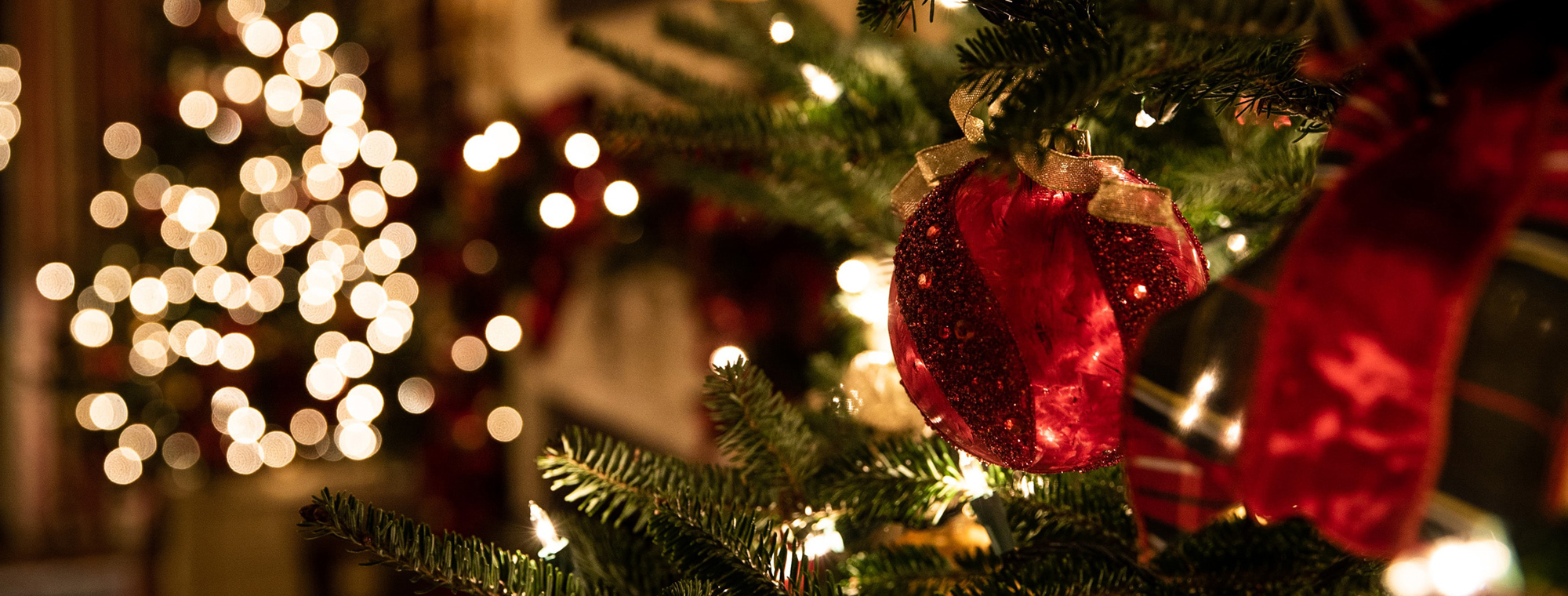
Celebrating Christmas in 9 European Countries
Christmas is a magical time of the year, celebrated with great enthusiasm and unique customs across European countries. Holiday customs in nearly every European country include gatherings for meals and observation of religious traditions as early as November, and as late as January.
However, European Christmas traditions vary greatly from country to country. Each nation has its own special traditions, delicacies, and ways of commemorating this festive season. While you'll find Santa Clause in many countries, there are also witches, gnomes, and even goats that deliver gifts. And, while Christmas Markets may be a newer concept for many Americans, the tradition goes back centuries in Europe, where countries including Germany, France, Austria, and Italy have perfected the art of holiday celebrations.
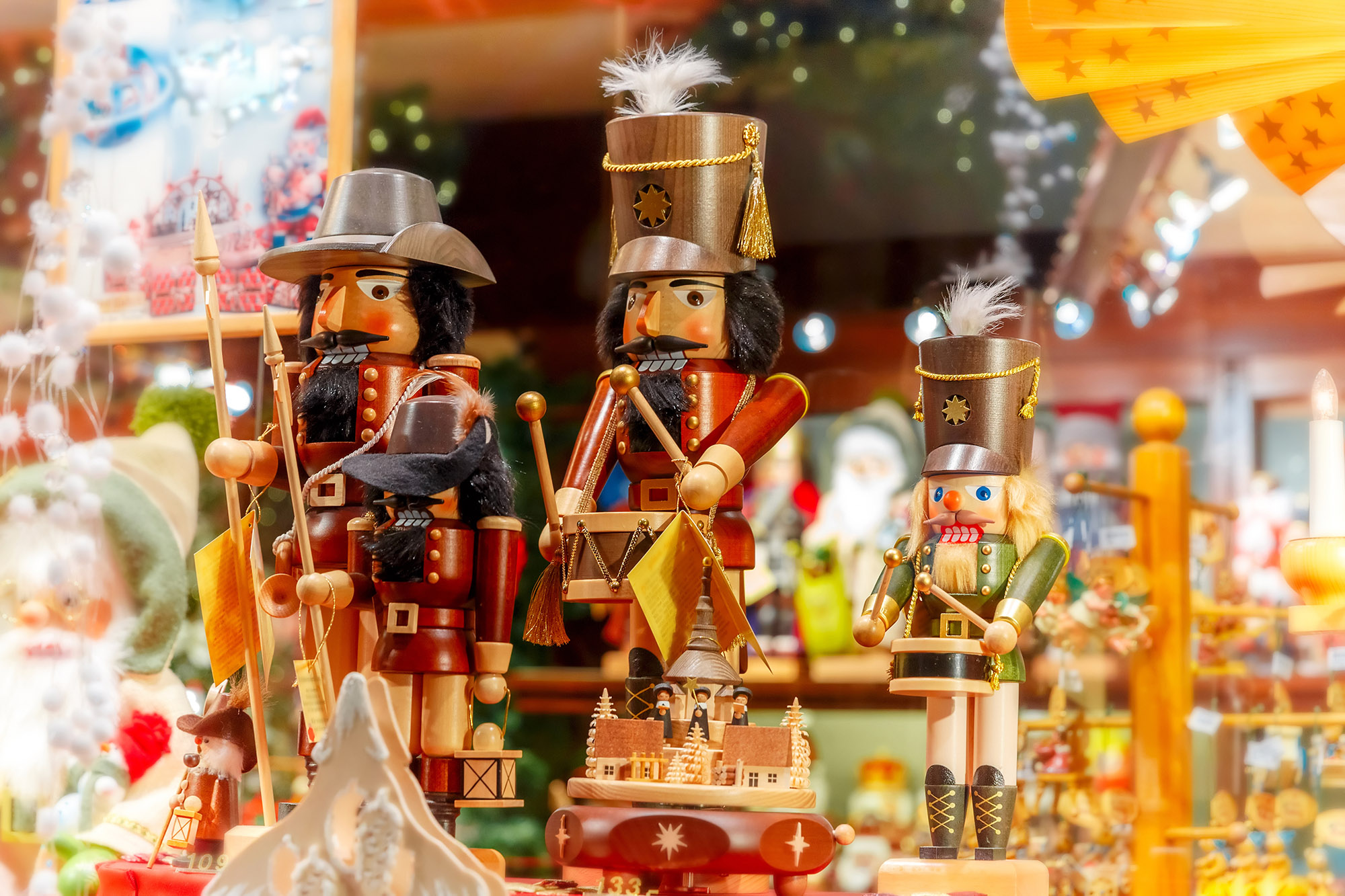
Germany: The Land of Christmas Markets
Throughout the month of December, families in Germany gather for holiday celebrations. Children hang final tree decorations on Heiligabend (Christmas Eve), and open presents on Christmas Day. Germany is famous for its enchanting Christmas markets. These markets, known as "Weihnachtsmärkte," feature beautifully decorated stalls selling handcrafted gifts, traditional foods like bratwurst and stollen, and the ever-popular glühwein (mulled wine). The Advent calendar, which originated in Germany, is also a cherished part of the countdown to Christmas.

United Kingdom: Traditional Charm
In the United Kingdom, Christmas traditions are deeply rooted in history and charm. People decorate their homes with holly, mistletoe, and, of course, the Christmas tree. One of the most iconic British customs is the Christmas cracker – a colorful paper tube filled with small gifts and jokes, which is pulled apart to reveal its surprises during Christmas dinner. The Royal Christmas speech is also a beloved tradition, where the monarch addresses the nation on Christmas Day.
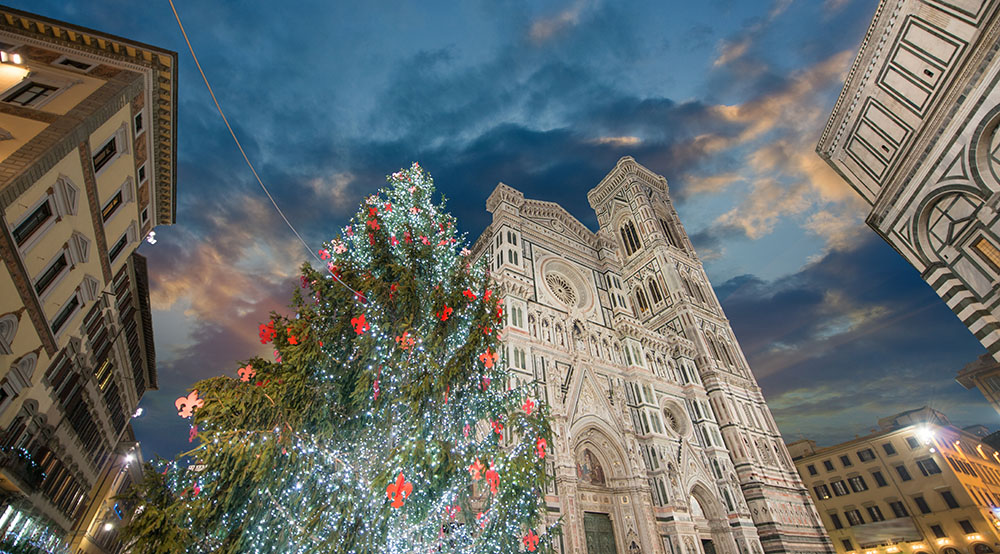
Italy: A Season of Lights and La Befana
Italy's Christmas celebrations are marked by an abundance of lights and decorations. Nativity scenes, called "presepi," are a common sight in Italian homes. Children eagerly await the arrival of La Befana, an old witch-like character who brings gifts to good children on the Epiphany. A traditional Italian Christmas meal features dishes like panettone and a variety of seafood.

France: Joyeux Noël with a Gastronomic Feast
In France, Christmas is synonymous with exquisite cuisine and fine wine. The French indulge in a grand feast on Christmas Eve, known as "Réveillon." Dishes like foie gras, oysters, and a variety of decadent desserts are on the menu. Even more, Christmas Day breakfast must be finished before children are allowed to open presents from Père Noël (Father Christmas). Additionally, French nativity scenes, called "crèches," are a popular Christmas decoration.
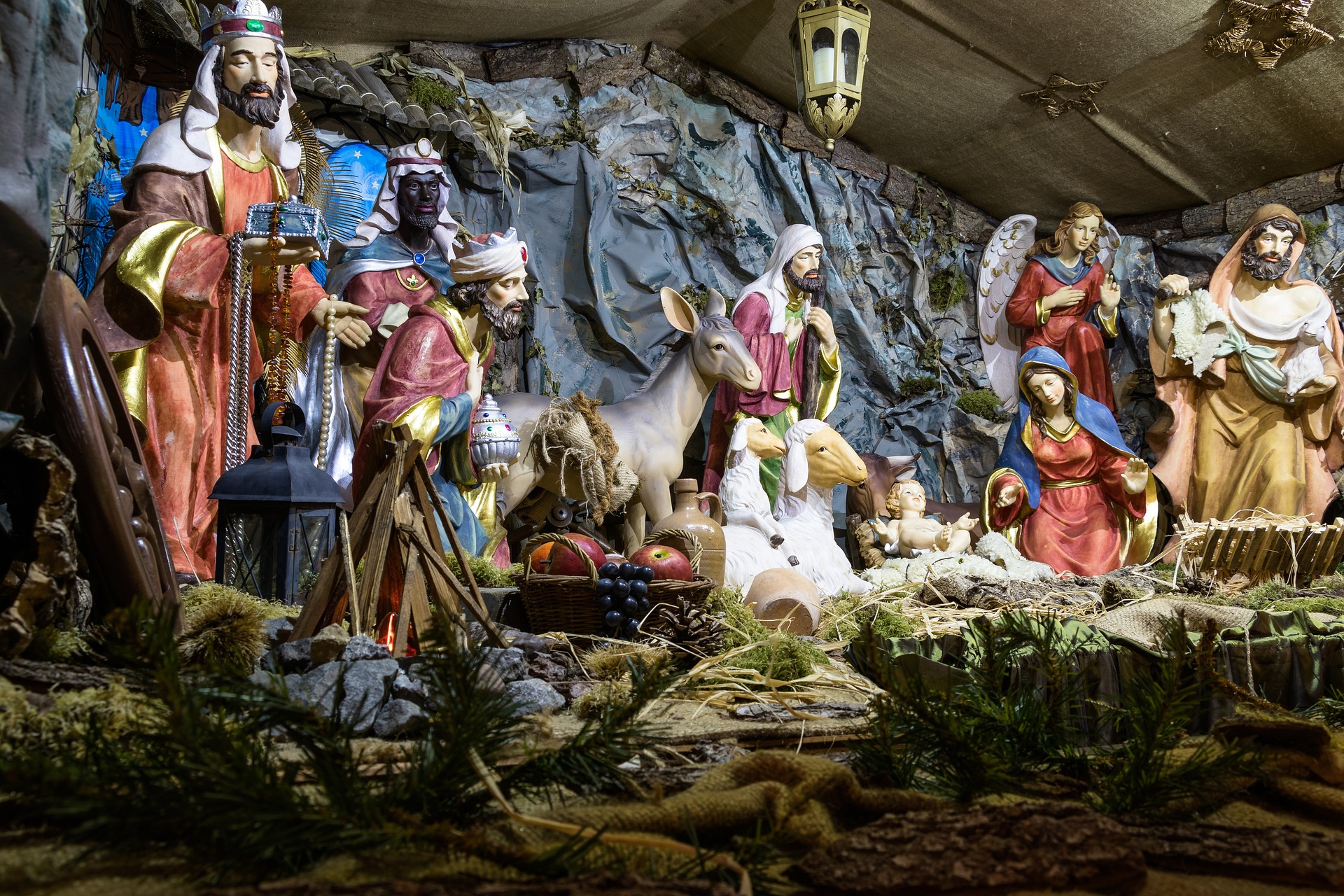
Spain: Nativity Scenes and the Feast of the Three Kings
In Spain, the December 8th Feast of the Immaculate Conception begins the Christmas season. Nativity scenes, or "Belenes," are meticulously crafted and displayed in homes and churches. Traditional Christmas dinner, Pavo Trufado de Navidad (Christmas turkey with truffles), is served before midnight mass, “La Misa Del Gallo” (Mass of the Rooster), named for the legendary rooster’s crow the night of Christ’s birth. Christmas celebrations extend well into January with the Feast of the Three Kings on January 6th, known as "Epiphany." On this day, children receive gifts from the Three Wise Men, and parades featuring these characters are common in many Spanish cities.
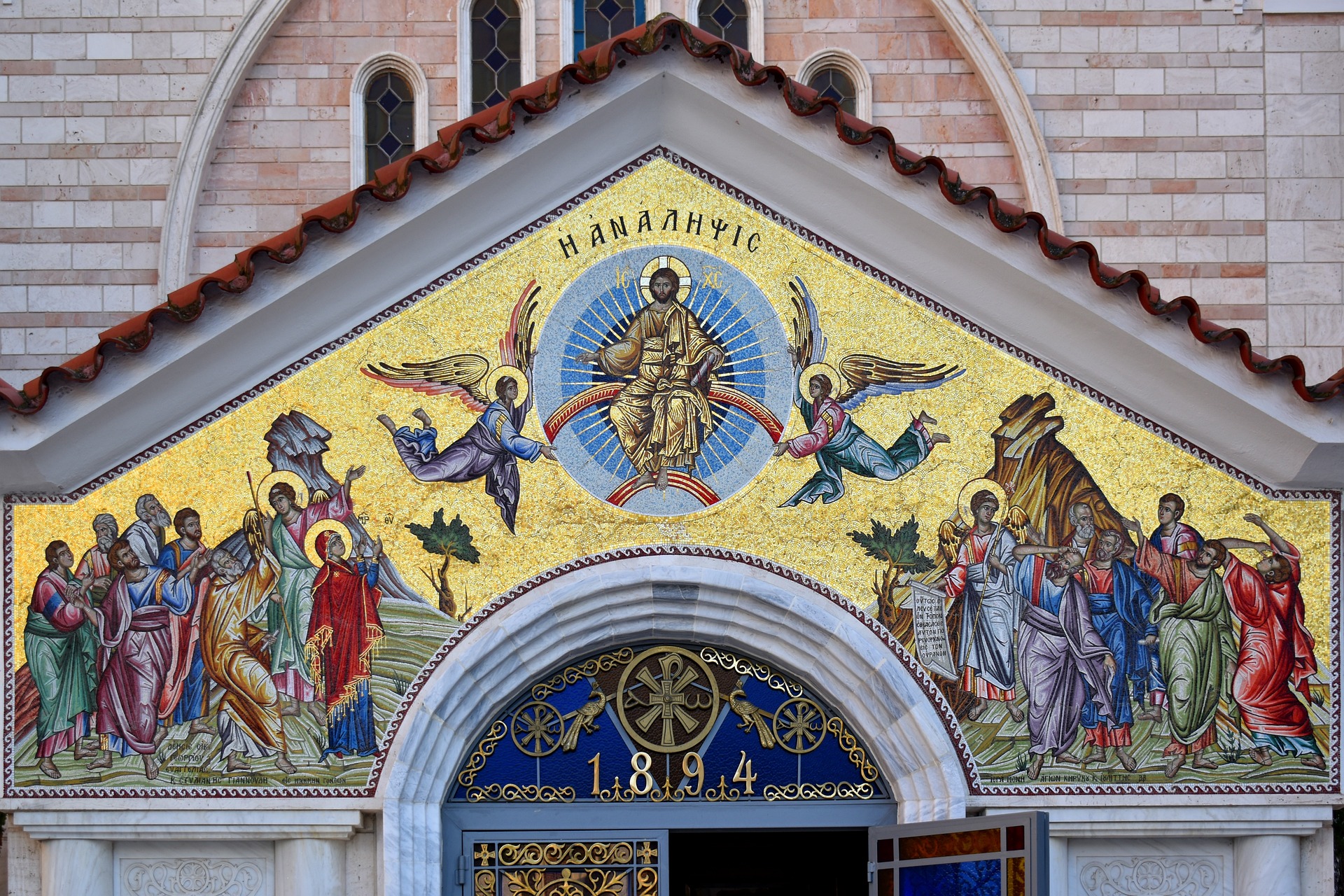
Greece: Celebrating with Religious Traditions
Due to Greece’s Christian Orthodox roots, Christmas is an important and religious holiday in Greece. That is why it is customary for those of faith to go to church on Christmas morning. Most towns are decorated with bright lights, bells, angels, and the like. You’ll also see boats decorated with many lights because Saint Nicolas is considered a protector of sailors.
Christmas time in Greece is a time for feasting. Traditionally, the main course is roast pork, with a variety of side dishes. Recently roast turkey has also become a popular main dish. On Christmas Eve many Greeks make Christopsomo, a bread with a cross carved into the top of the crust before it is baked. On Christmas Day, the head of the family makes the sign of the cross above the loaf of bread, cuts it, and gives a piece to each person at the dining table.
The holiday season doesn’t wind down until well after the New Year begins. The icing on the cake is the feast day of Theophany. All around Greece waters are blessed and a cross is thrown into the waters. Brave Greeks dive into the freezing water to retrieve the cross for good luck.
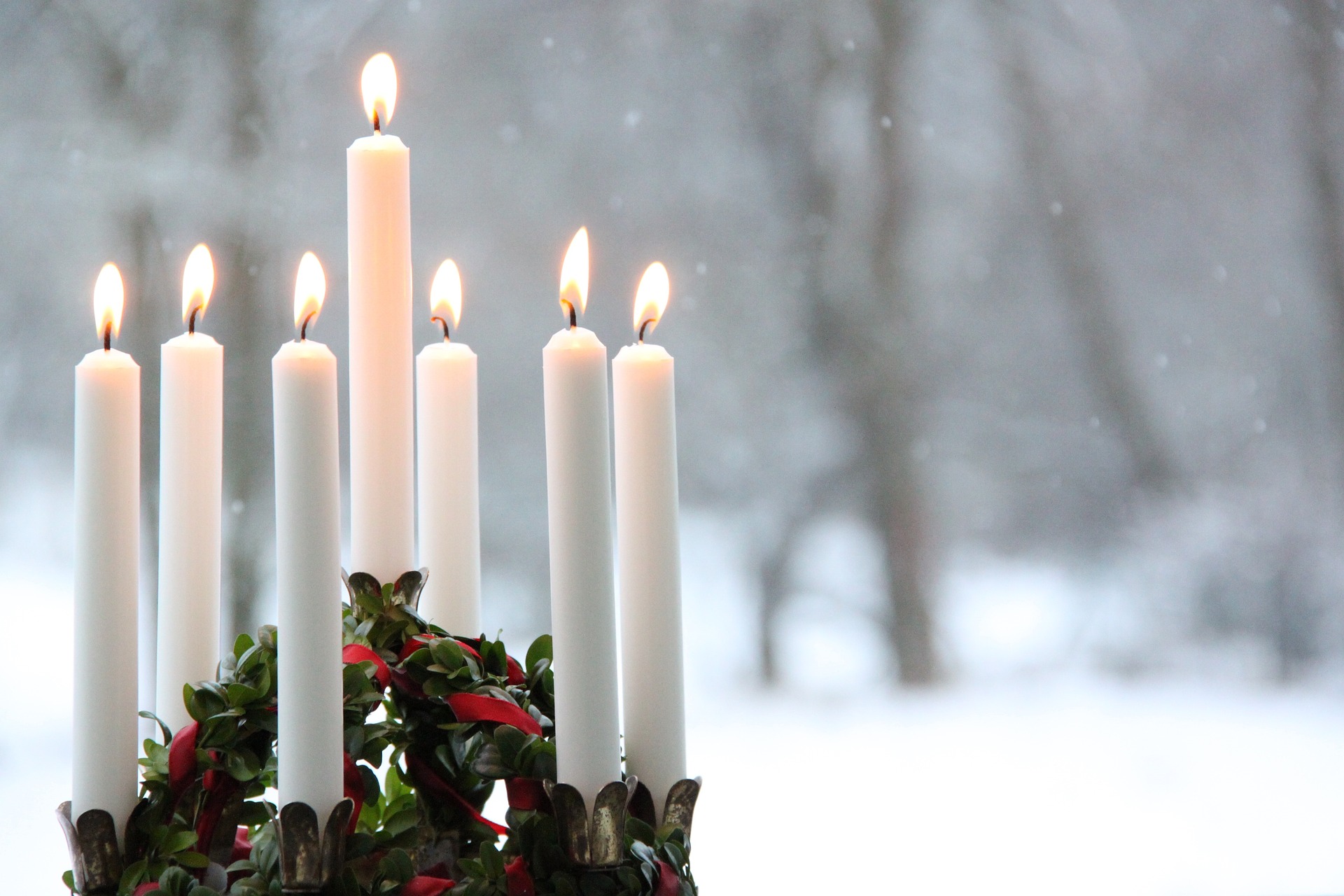
Sweden: A Cozy and Peaceful Julfest
Swedes celebrate Christmas with a sense of coziness known as "mysig." A traditional Swedish Christmas Eve includes a smorgasbord of dishes like herring, meatballs, and sausages. Candles and lanterns are lit to combat the darkness of the Swedish winter, and families gather to exchange gifts.
Christmas Celebrations in Norway
Norwegian Christmas traditions blend the old and the new, creating a unique and heartwarming celebration that brings people together in the spirit of joy and togetherness. Christmas Eve includes a large meal known as "Julaften." Families come together for a festive dinner featuring traditional dishes like "ribbe" (roast pork belly), "lutefisk" (dried fish soaked in lye), and "risengrynsgrøt" (rice pudding). An almond is hidden in one serving of rice pudding, and the person who finds it is believed to have good luck in the coming year.
After the meal, families exchange gifts and often attend a midnight church service to celebrate the birth of Jesus. As a nod to Norway's Viking heritage, some regions also celebrate with a bonfire, symbolizing the banishment of evil spirits and the return of the sun during the darkest days of winter.
Children receive gifts from Jul Nisse, a present-delivering gnome—if they remember to offer porridge to Julebukk, Jul Nisse's goat who taunts those who forget his favorite snack.

Christmas Celebrations in Finland
At 12 noon on Christmas Eve, “Christmas peace” is declared and observed for 20 days. Finnish Christmas is quiet: people avoid crowds and noise. A Christmas Eve sermon followed by sauna bathing is an ancient Finnish Christmas ritual welcoming ancestral spirits.

















